Festivals play a vital role in a filmmaker’s career and for those directors making the transition from short film to feature, having your film selected at a top tier event can mean both recognition and exposure. For the trio of filmmaker’s we’re talking to today, they all started in shorts and all have features (debut or sophomore) playing at SXSW 2023.
With strong connections to the festival, it’s always exciting for us to see alums in the line-up, but beyond that it allows us a chance to catch up with some of our previously featured filmmakers and gain some insight into how they took those next steps in their career and if they have any advice for anyone looking to traverse the same path.
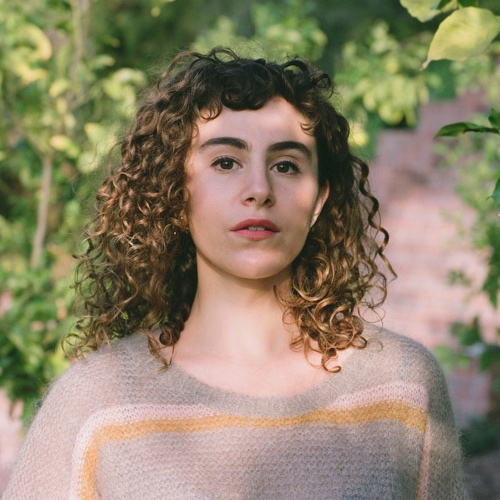
LIZA MANDELUP
An award winning film director from New York, currently residing in Los Angeles. Mandelup’s short-form directorial debut, Twinheads, premiered on Dazed Digital, and since then, she has been a long time collaborator for many online platforms such as Vogue, Nowness, i-D, and Dazed, as well as having directed numerous films for many other premiere editorial platforms. In 2018, Liza received the prestigious Sundance Documentary Fund grant for her film Jawline which premiered at Sundance Film Festival and went on to win the Special Jury Award for Emerging Filmmaker and picked up as a Hulu Original. She was named by filmmaker magazine as one of the 25 New Faces of Independent Cinema in 2018.
S/W Films: Fangirl, Sundown | SXSW Feature: Caterpillar
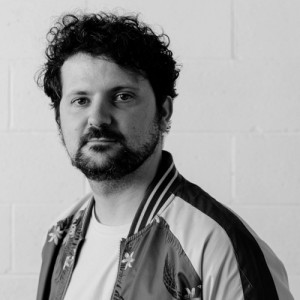 MATT VESELY
MATT VESELY
A South Australian writer/director, Vesely works with award winning creative collective Closer Productions. Often combining his love of science fiction with a sincere view of human relationships, Matt has directed a number of successful shorts and worked as a writer across TV & film. His most recent short, the science fiction comedy System Error, was selected for Tribeca Film Festival and has since gathered 500k views on sci-fi social platform DUST.
S/W Films: My Best Friend is Stuck on the Ceiling | SXSW Feature: Monolith
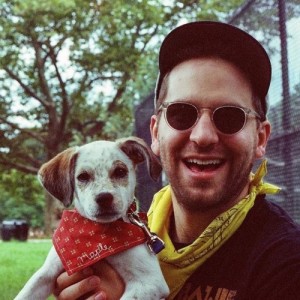 Michael Lukk Litwak
Michael Lukk Litwak
Kickstarting his career with NYU Thesis film The Life and Death of Tommy Chaos and Stacey Danger, an unflinching look at the brutal effects of space-dinosaurs on a relationship — a topic that resonated across the world: after taking home NYU’s top prizes and playing at more than 40 film festivals around the world. Since then he’s sold a tv pilot to Sony, two feature scripts to independent producers and directed the entire season of a multi-million dollar series (Snatchers Season 3) for Warner Brother.
S/W Films: The Life and Death of Tommy Chaos and Stacey Danger, Napoleon in Exile, Alpha Squadron | SXSW Feature: Molli and Max in the Future
***
Thanks for joining us today. We’re excited to see your names in this year’s SXSW line-up, before we get into it and discuss your journey into features, do you want to take this opportunity to introduce the film to our audience?
Liza: Well! Sounds like a great place to plug the synopsis: Endlessly struggling to feel seen, David becomes infatuated with a mysterious company’s promise to transform people’s lives by permanently changing the color of their eyes. After traveling to India to get the controversial procedure, he begins to question if this artificial beauty will give him the fulfillment he truly seeks.
Matt: Monolith is a science fiction thriller that follows an unnamed journalist, recently disgraced when she took her passion for the truth a little too far. Holed up in her parent’s beautiful, isolated home, she gets to work on a clickbaity mystery podcast in an attempt to get back on her feet. When an anonymous email tips her off to a strange alien artifact cropping up around the world, she begins to drown in conspiracy, visions, and questions at the heart of her own family’s story. The film is all in one location, with one actor – the incredible Lily Sullivan (Evil Dead Rise). It was an experiment in telling a high-concept alien invasion story, but all through audio design and voices.
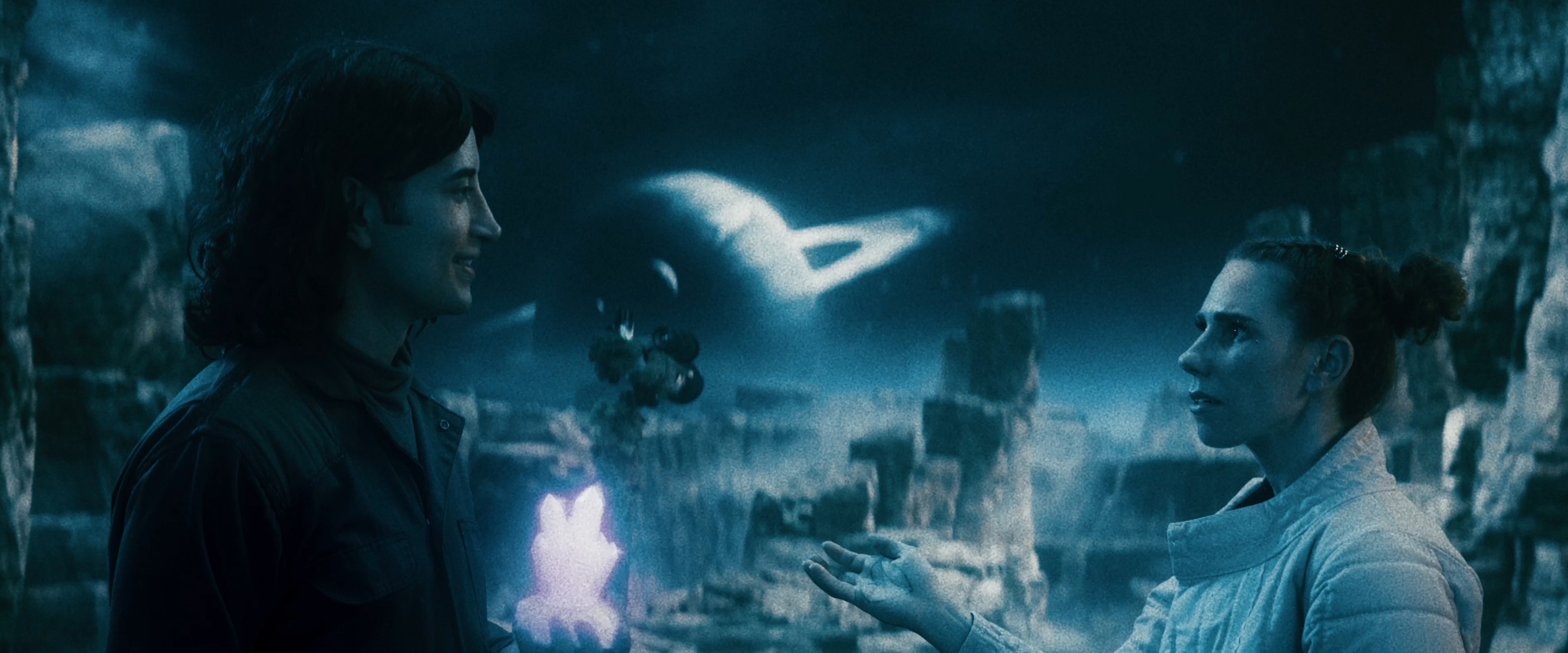
A still from Michael Lukk Litwak’s Molli and Max In The Future – playing the Visions section of SXSW 2023
What does it mean to you as a filmmaker to have the film screen at such a prestigious festival?
Matt: When we first started developing Monolith, in one of our first meetings together as a team – myself, producer Bettina Hamilton, and writer Lucy Campbell – we asked ourselves what our dream outcome would be. We literally said to ourselves – let’s make an indie sci-fi film and go to SXSW. It’s unbelievable that far-fetched dream has become a reality.
Michael: It’s really hard to describe how much it means! I’ve been making shorts for a decade and while I’m really proud of them (and they still were able to find an audience thanks to people like you at SOTW!) none ever got into SXSW. Even though I was hopeful, I’ve experienced over and over again the pain of that rejection and know first hand how difficult it is to get into a festival like this.
Liza: It’s the best! Filmmaking is a very slow process that requires a lot of patience and the feeling of being a filmmaker comes from someone watching your film. When your film is on a streaming site it’s great but it’s the most disconnected moment for the filmmaker. You don’t really get to hear from the audience and feel the room. A film festival like SXSW gives you that feeling of okay this is why I make films. I need to be reminded of that every now and then.
Michael: Filmmaking is so exhausting and we all do it with the hope that we can share our work with an audience in a theater, so to get in really makes all the long days and nights worth it!
Matt: We’re so excited to attend, and to be given that vote of confidence by a prestigious festival is really validating. We also think that the SXSW audience is the right one for the film – savvy, film-literate folks who also love a fun genre pic.
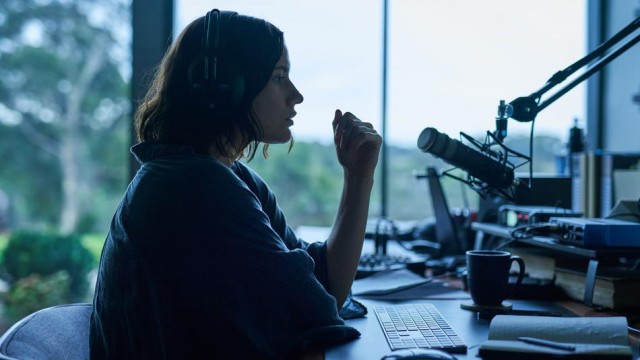
Matt Vesely’s Monolith plays the Midnighters section at SXSW 2023
We were first introduced to your work as a director through your short films, how important were those experiences in helping to further your career and was it always your goal to move into feature filmmaking?
Liza: I don’t think I would have gotten my first feature financed without those shorts. I just kept making shorts until I was able to make a feature.
Michael: I learned so much through making my shorts and they opened a lot of doors. I would have never gotten the cast I got without having samples of my work to prove that I knew how to pull off an ambitious, vfx-heavy script. My shorts helped me find my voice as a filmmaker and gave me a ton of on-the-ground craft experience.
Matt: I actually gave up on making a feature a few years ago – it had been my dream since childhood, but I’ve been forging a career as a story producer and writer for television here in Australia, which I do love, and I felt like I was beating my head against the wall trying to progress from directing shorts. It’s so hard to find that opportunity, and I had made my peace that it might not happen for me.
“Shorts are more impulsive, and I’m impulsive so I miss shorts.”
Michael: The goal has always been long-form storytelling, whether that’s TV or Film doesn’t really matter to me as I think both are equally exciting. I love shorts but they feel unsustainable to me on a long-term basis (at least, narrative fiction shorts). I think a lot of people have tried to monetize short form video but no one who grew up watching YouTube for free thinks of short form as something that you’re supposed to pay for. It’s a bummer and hopefully someone smarter than me will figure out a way to make it sustainable.
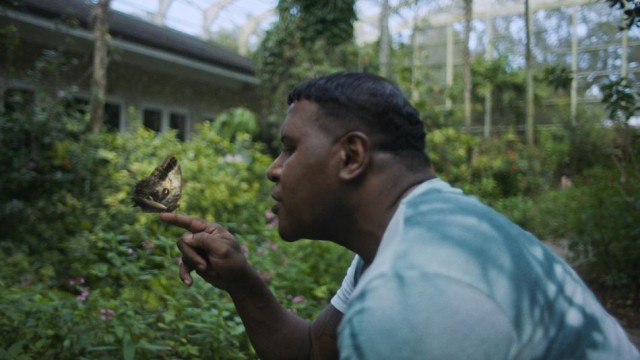
Liza Mandelup’s Caterpillar plays the Visions section at SXSW 2023
I’m sure there are a lot of differences when it comes to making shorts v making features, but I’m interested to know about the difficulties you faced making the step to the longer form?
Michael: Covid made everything especially stressful. On our first day of shooting our 1st AD tested positive and we had to shoot all week without her. After that, even when things were going well there was this specter of additional uncertainty hanging over everything. This was only a couple months ago in Summer 2022 so we were far past the peak, everyone was vaccinated and masked and it had become part of everyday life but the thought that anyone could get it at any moment was an additional stress that I’d never had to deal with.
Liza: There isn’t anything easy about making a feature, so literally everything. We started our film in 2020…so ya. Nothing was easy! There are infinite challenges when making a feature documentary – it’s a marathon.
Michael: It’s definitely a marathon and building up the endurance to combat decision fatigue is incredibly difficult. I had such an amazing team that really elevated all the different elements of the film and being able to trust their instincts and rely on them for support is what got us through.
Matt: Because we were financed through the FilmLab program, we were very lucky to have that part sorted. That’s always the hardest – it was a small budget, but it was confirmed early and we could tailor our script to meet it. For us, our biggest pressure was time. We shot the film in May of 2022 and delivered in October. That pressure on the post-production was intense – but it meant that we just had to trust our instincts and our collaborators. Make clear decisions, and follow them through. It was invigorating, but probably next time I’d ask for a few more months in editorial so we could take a more measured approach!
One of the most obvious differences between shorts and features is the amount of time you have to tell your story. Having made both, what does having a longer run-time to work with mean for your storytelling?
Liza: Whenever I’m diving into a feature film, it always feel like there are ten films I could make within the one film I’m making. I’ll be like — “okay this idea over here thats another film, not this one”. All these stories start coming at you and you have to grab some and save others for future films. You’re deciding what can make it in and what can’t. With a short you really just have to accept it’s just a little slice of a story. You can’t get distracted.
Michael: I think with longer-form storytelling you just get more time to delve into the nuances of situations and themes. You can explore characters from different angles and I think that often allows for more depth. I also love an extended comedic bit and I feel like when you’re making a short you have to be so efficient with your time that it doesn’t always allow for that.
“A good short film is a true work of art – lightning captured in a bottle, real magic.”
Matt: I actually found working in long-form less stressful than working on shorts. You have time on the shoot to learn and respond to things that are happening. Across the run time of the film, you can take your time, allow things to breathe. Make bolder, more cinematic choices because you can trust that the audience is invested on the ride with you, rather than having to deliver on your thematic and creative intentions almost instantly as you do in short-form. It gave me so much more respect for the challenge of short filmmaking. It’s really an art unto its own, and a good short film is a true work of art – lightning captured in a bottle, real magic. So hard!
Michael: Ironically, my movie is split up into 8 different chapters and is kinda episodic so it felt a little like I was making 8 short films with the same characters in the same universe. I think a lot of filmmakers are told their movie needs to have 3 acts so they think only 3 big turning points need to happen and the middle of the movie ends up with characters treading water. Treating every chapter a little like a short film with a beginning, middle, and end really helped me keep the momentum up.
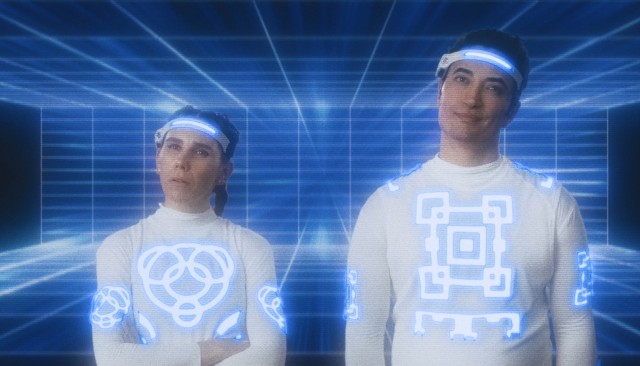
Zosia Mamet (L) & Aristotle Athari in Michael Lukk Litwak’s Molli and Max in the Future
A majority of the S/W audience are emerging filmmakers, hoping to make the jump into feature filmmaking at some later point in there career, if you had one piece of advice for them, what would it be?
Liza: Keep making shorts until you find the short that needs to be a feature! It’s a great space to workshop ideas and easier to communicate your vision to people in the industry for support when you have that body of work behind.
Michael: The cavalry isn’t coming. I think there’s a narrative that you make shorts in order to create opportunities and they definitely can but you can also waste a ton of time waiting for someone to swoop in and help you make your movie. My shorts were able to get me representation and get me lots of meetings at really cool companies but often the subtext of those meetings ended with “call us when you have your first feature!” I thought having reps was going to be the thing that allowed me to make my first feature but when it came down to it, I ended up needing to use all the same strategies I used on my shorts to make my feature, and I would never have had the confidence to scale that up if I hadn’t done it before.
Matt: I think the most important advice I could give would be to take things one step at a time. At first, it can seem overwhelming dealing with so much more material – a short you can hold entirely in your head at once. You can really agonise over every detail in a way you can’t on a longer-form work. I used to watch my shorts ten times a day in post-production to polish them. It’s scary not being able to do that with a 90 minute film (you’d lose all your time as well as your mind). I felt much more in control of my shorts.
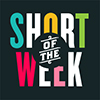 Short of the Week
Short of the Week